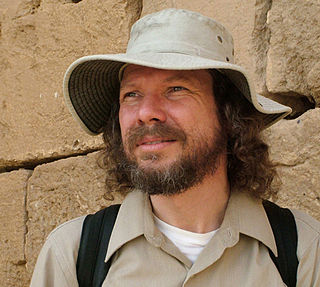A Quote by Camille Henrot
What I like about baroque is the reemergence of pre-Christian religion. The art of baroque mixes ancient pre-Christian myths with Christian imagery and each reflects upon the other.
Related Quotes
That the religious right completely took over the word Christian is a given. At one time, phrases such as Christian charity and Christian tolerance were used to denote kindness and compassion. To perform a "Christian" act meant an act of giving, of acceptance, of toleration. Now, Christian is invariably linked to right-wing conservative political thought -- Christian nation, Christian morality, Christian values, Christian family.
What makes art Christian art? Is it simply Christian artists painting biblical subjects like Jeremiah? Or, by attaching a halo, does that suddenly make something Christian art? Must the artist’s subject be religious to be Christian? I don’t think so. There is a certain sense in which art is its own justification. If art is good art, if it is true art, if it is beautiful art, then it is bearing witness to the Author of the good, the true, and the beautiful
A lot of people, especially Christians, want to put you in this box of being a Christian actor, and I don't believe in it. You do yourself and everyone else a big disservice when you start thinking about it as 'Christian art.' That's why most Christian art is bad. They don't put a premium on the 'art.'
A lot of people, especially Christians, want to put you in this box of being a Christian actor, and I don't believe in it. You do yourself and everyone else a big disservice when you start thinking about it as "Christian art." That's why most Christian art is bad. They don't put a premium on the "art."
Christians have always tended to transform the Christian Revelation into a Christian religion. Christianity is said to be a religion like any other or, conversely, some Christians try to show that it is a better religion than the others. People attempt to take possession of God. Theology claims to explain everything, including the being of God. People tend to transform Christianity into a religion because the Christian faith obviously places people in an extremely uncomfortable position that of freedom guided only by love and all in the context of God's radical demand that we be holy.
Well-referenced, with numerous quotations from renowned Egyptologists and classical scholars, Acharya's penetrating research clearly lays out the very ancient pre-Christian basis of modern Christianity. Those who espouse Christianity beware! After digesting the evidence, you will never again view your religion in the same light.































